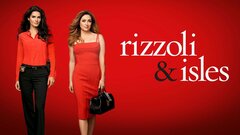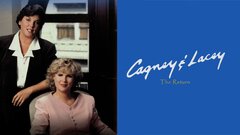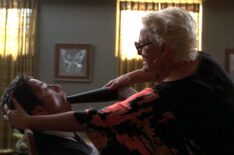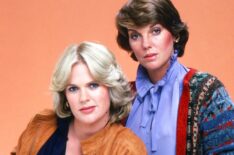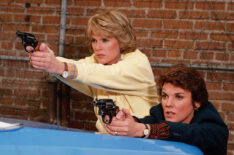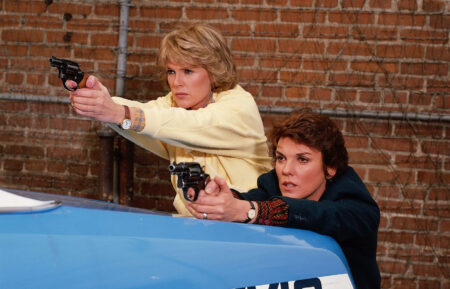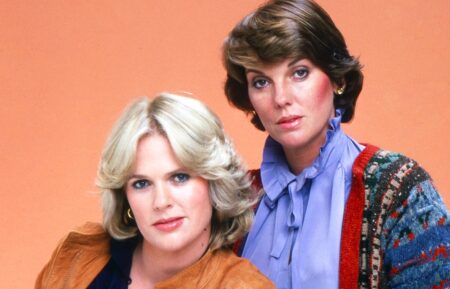Though she preferred to consider herself a comedienne, actress Sharon Gless achieved her greatest fame in dramatic turns on several acclaimed television series, most notably the groundbreaking police show "Cagney and Lacey" (CBS, 1982-88), which earned her two Emmys, a Golden Globe, and countless nominations. She later earned more acclaim as an outspoken public defender in "The Trials of Rosie O'Neill" (CBS, 1990-92), and was hailed for her performance as Hal Sparks' supportive mother on the American version of "Queer as Folk" (Showtime, 2000-05).
She continued her impressive streak on television with a turn as the chain-smoking, hypochondriac and always prying mother of a banished spy (Jeffrey Donovan) on the hit cable series, "Burn Notice" (USA, 2007-13), while also earning attention for her stints on "The State Within" (BBC, 2006), and "Nip/Tuck" (FX, 2003-2010). Having also received solid notices for her numerous stage appearances in America and England, it was no small wonder that Gless remained a viable and sought-after actress for several decades.
Born Sharon Marguerite Gless in Los Angeles on May 31, 1943, she was the granddaughter of Neil S. McCarthy, a prominent Hollywood entertainment lawyer whose clients included Howard Hughes and Louis B. Mayer. After attending Gonzaga University, Gless worked as a secretary for several advertising firms and independent movie companies in Los Angeles. She eventually decided to shift her attention to acting in the late 1960s, and soon after, began landing work in TV movies and episodic series. A petite blond with a flair for a humorous line, she was a natural for light-hearted fare like "All My Darling Daughters" (1972) and its 1973 sequel, "My Darling Daughters' Anniversary" (1973), which cast her as the daughter of Robert Young.
After a short stint as a secretary for detectives Dan Dailey and James Naughton in "Faraday and Company" (NBC, 1973-74), she would later join the cast of Young's long-running "Marcus Welby, M.D." (ABC, 1969-1976) as Nurse Kathleen Faverty. By that point, Gless had signed a 10-year contract with Universal and was appearing regularly in its television efforts. When the contract ran its course in 1982, Gless described herself to the press as the last of the studio contract players.
Gless eventually graduated to feature film work in 1974's "Airport 1975," but found more consistent employment on television. She was the Girl Friday to con men Eddie Albert and Robert Wagner in the likable drama "Switch" (CBS, 1975-78), and appeared opposite Richard Crenna in the offbeat (and short-lived) comedy "Turnabout" (NBC, 1979), about a husband and wife whose souls could switch bodies with the help of a magic statue. She also distinguished herself with appearances in the miniseries "Centennial" (NBC, 1978-1980) and "The Last Convertible" (1979) as well as TV movies like "The Immigrants" (1978) and "The Scarlett O'Hara War" (1980) as Depression Era star, Carole Lombard.
In 1982, Gless was tapped to replace Lynn Redgrave as the star of the successful sitcom "House Calls" (CBS, 1979-1982) after Redgrave was fired for contract issues following the birth of her daughter. Gless found the experience a less than pleasant one (the series began to nosedive in the ratings after her arrival), and it made her extremely skeptical about joining the cast of "Cagney and Lacey." CBS had reached out to her to replace Meg Foster as Detective Christine Cagney - a move precipitated by a network executive's comments that the actress and co-star Tyne Daly looked "like a couple of dykes" - so sought someone with a "softer" look.
The decision to remove Foster (who herself was a replacement for Loretta Swit) had been met with anger by the show's fans, but its renewal was contingent on getting a new actress for the role, and Gless was tapped. Initially, the network had pressured producers Barbara Corday and Barney Rosenzweig to change Cagney's persona from working class to the product of a wealthy background, but the husband-and-wife team stood their ground, and maintained Cagney's back story as the daughter of a former NYPD cop who struggled with alcoholism, which Cagney would later battle as well. The move gave Gless a meatier character to play, and she eventually won over viewers with her tough yet emotional performance. Over the course of its six-year run, Gless would receive two Emmys and two Golden Globes (and earn an additional four nominations for each award) as well as four Viewers for Quality TV Awards for Best Actress.
The demands of a network show dictated that Gless spend most of her time with "Cagney and Lacey," but the actress did manage to appear in several other projects during its tenure. She made a rare film appearance in a thankless role as Michael Douglas' wife in the middling thriller "The Star Chamber" (1983), but fared better as the feisty sh maker's daughter who seeks to marry one of her father's employees in the CBS TV movie "Hobson's Choice" (1983), based on the play by Harold Brighouse, as well as the woman in a loveless relationship who falls for a widower (John Ritter) in "Letting Go" (1985). In 1988, "Cagney and Lacey" ended its network run, and Gless was wo d by several networks to top-bill her own series. She resisted all offers and concentrated on her personal life, which experienced its ups - she began a relationship with Rosenzweig, who had separated from Corday, and the couple married in 1991 - and downs, culminating with an obsessed fan gaining entry to her home in 1990.
In 1990, Rosenzweig lured Gless back to TV with "The Trials of Rosie O'Neill," a likable drama about a former Beverly Hills attorney who left her successful practice to become a public defender. The series, which courted controversy with a slang reference to women's breasts in its debut episode, earned Gless a Golden Globe and two additional Emmy nominations for her portrayal of the plucky liberal lawyer, but struggled to find a foothold in the ratings. Edward Asner was brought on board in 1991 to offer some dramatic tension as a conservative cop, but the show ended after only another year.
Gless busied herself with numerous TV movies - including the true crime features "Honor Thy Mother" (1992) and "Separated by Murder" (1994) which allowed her to play identical twins - and received critical acclaim for her appearances in London's West End in a stage version of Stephen King's "Misery" (1992-93) and Neil Simon's "Chapter Two" in 1996 opposite Tom Conti. In 1994, Gless and Tyne Daly reunited for the first of four TV reunions as Cagney and Lacey, and in 1997, she narrated the Oscar-nominated documentary "A Sense of Life," about the author Ayn Rand.
Gless moved to cable television in 2000 to play Debbie Novotny, the overbearing but supportive mother of Michael Novotny (Hal Sparks) on "Queer as Folk." Over the course of the show's four seasons, Debbie carried out an investigation into the murder of a male prostitute found behind the diner where she worked, and later campaigned against an anti-gay former police chief's mayoral campaign. Gless was widely praised for her performance by gay advocacy groups.
In 2006, she played the Secretary of Defense in the BBC production "The State Within," which starred Jason Isaacs as a British ambassador who uncovers a conspiracy that could lead to global war. The following year, she shifted gears to play the hypochondriac mother of a world-weary ex-spy in the hit cable series "Burn Notice," then demonstrated her versatility again by taking on Colleen Rose, a deranged woman who attempts to become a movie and TV agent for plastic surgeon Sean McNamara (Dylan Walsh) on "Nip/Tuck." Gless tore into the juicy latter role, which had her committing murder to keep McNamara from going with another agent, then attempting suicide when he discovered her true identity, finally stabbing him in the middle of surgery in the season finale. For her demented portrayal, she received a 2008 Emmy nomination for Outstanding Guest Actress in a Drama Series, losing to Cynthia Nixon's guest turn on "Law & Order: Special Victims Unit" (NBC, 1999- ). Her role as the constantly prying mother of super spy Michael Weston (Jeffrey Donovan) on "Burn Notice" finally earned her an Emmy nod for Outstanding Supporting Actress in a Drama Series in 2010.






